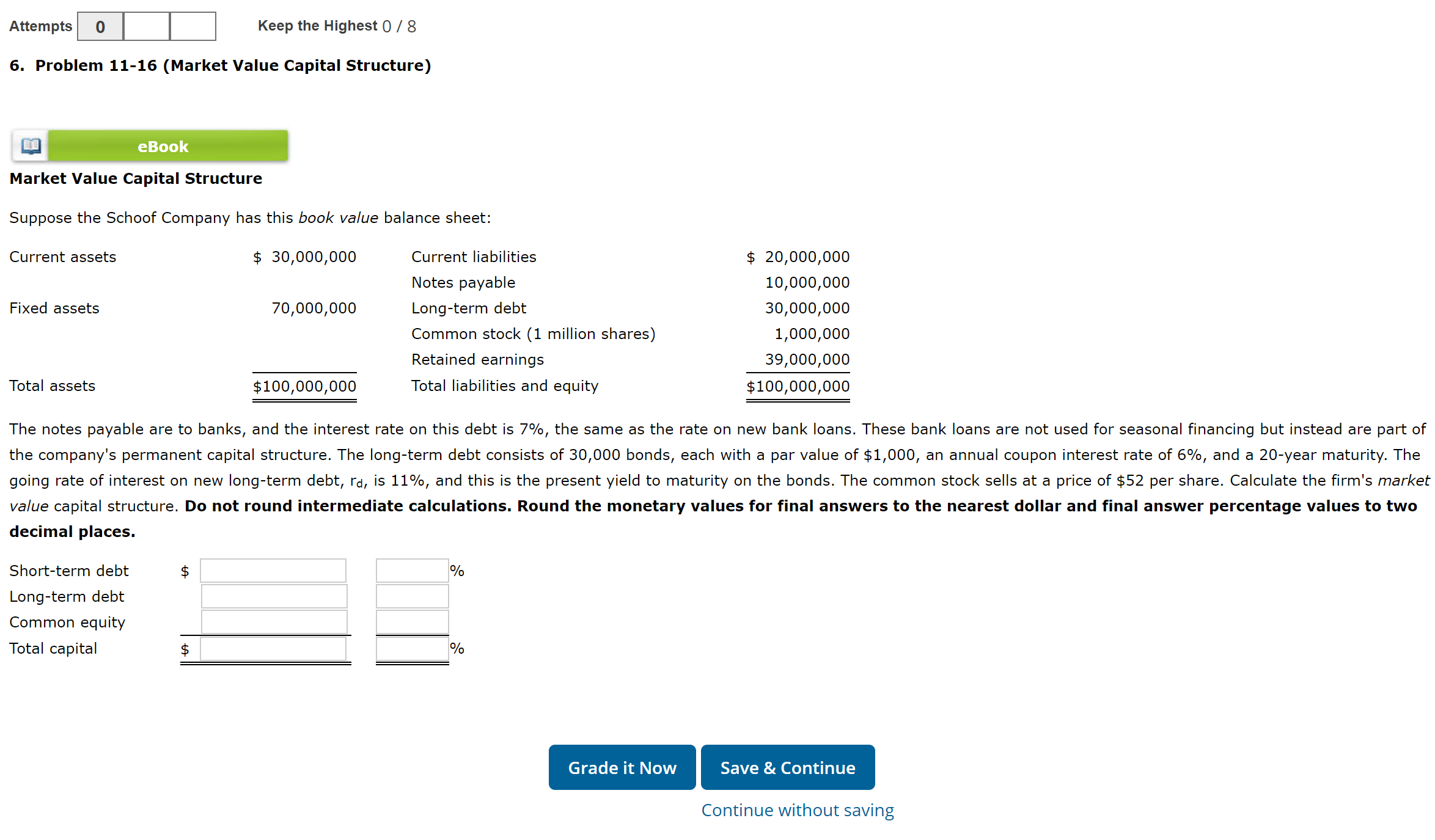Question
Market Value Capital Structure Suppose the Schoof Company has this book value balance sheet: Current assets $ 30,000,000 Current liabilities $ 20,000,000 Notes payable 10,000,000

Market Value Capital Structure
Suppose the Schoof Company has this book value balance sheet:
| Current assets | $ | 30,000,000 | Current liabilities | $ | 20,000,000 | |
| Notes payable | 10,000,000 | |||||
| Fixed assets | 70,000,000 | Long-term debt | 30,000,000 | |||
| Common stock (1 million shares) | 1,000,000 | |||||
| Retained earnings | 39,000,000 | |||||
| Total assets | $ | 100,000,000 | Total liabilities and equity | $ | 100,000,000 |
The notes payable are to banks, and the interest rate on this debt is 7%, the same as the rate on new bank loans. These bank loans are not used for seasonal financing but instead are part of the company's permanent capital structure. The long-term debt consists of 30,000 bonds, each with a par value of $1,000, an annual coupon interest rate of 6%, and a 20-year maturity. The going rate of interest on new long-term debt, rd, is 11%, and this is the present yield to maturity on the bonds. The common stock sells at a price of $52 per share. Calculate the firm's market value capital structure. Do not round intermediate calculations. Round the monetary values for final answers to the nearest dollar and final answer percentage values to two decimal places.
| Short-term debt | $ | % | |||
| Long-term debt | |||||
| Common equity | |||||
| Total capital | $ | % |
Step by Step Solution
There are 3 Steps involved in it
Step: 1

Get Instant Access to Expert-Tailored Solutions
See step-by-step solutions with expert insights and AI powered tools for academic success
Step: 2

Step: 3

Ace Your Homework with AI
Get the answers you need in no time with our AI-driven, step-by-step assistance
Get Started


